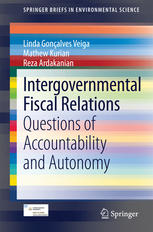

Most ebook files are in PDF format, so you can easily read them using various software such as Foxit Reader or directly on the Google Chrome browser.
Some ebook files are released by publishers in other formats such as .awz, .mobi, .epub, .fb2, etc. You may need to install specific software to read these formats on mobile/PC, such as Calibre.
Please read the tutorial at this link: https://ebookbell.com/faq
We offer FREE conversion to the popular formats you request; however, this may take some time. Therefore, right after payment, please email us, and we will try to provide the service as quickly as possible.
For some exceptional file formats or broken links (if any), please refrain from opening any disputes. Instead, email us first, and we will try to assist within a maximum of 6 hours.
EbookBell Team

4.3
18 reviewsThis book examines and analyzes issues related to public finance in subnational governments, along with a discussion of case studies on decentralization. Most of the analysis applies to all public goods and services provided by subnational governments, with some placed on the role of subnational governments in the management of environmental resources, notably water and waste
Coverage includes optimal arrangements for sharing fiscal responsibilities among different levels of government, the potential impact of decentralization on the quality of public goods delivery, local governments’ expenditure and revenue choices, and the effect of decentralization on accountability, governance and policy outcomes. The scope of discussion extends to both public finance theory and applied policy debates.
The first chapter, on trends in financing of public services, opens with an explanation of the how and why of government intervention in the economy, the nature and purposes of transfers between and among governments and trends in decentralization. Case studies examine the impact of decentralization in such areas as service delivery, water and sanitation, education and health, and on poverty and income inequality.
Chapter 2 examines public budgets: governance structures, norms and organizational practices, building up understanding of budgets, budget cycles, fiscal revenues from fees and taxes, expenses, debt and political economy issues, rules mandating balanced budgets in government and more.
Chapter 3 discusses issues of accountability and policy outcomes, offering important lessons from recent international experience, including ways to strengthen political, administrative and financial accountability. The concluding chapter recounts lessons from recent international experience and surveys implications for the nexus approach to management of environmental resources.
The information, analysis and expert advice presented here is particularly relevant for developing and emerging countries, where well designed decentralization reforms have a higher potential to improve efficiency in the provision of public services, and to enhance the development of integrated and sustainable strategies for the use of water, soil and waste resources and applications that advance the nexus approach.